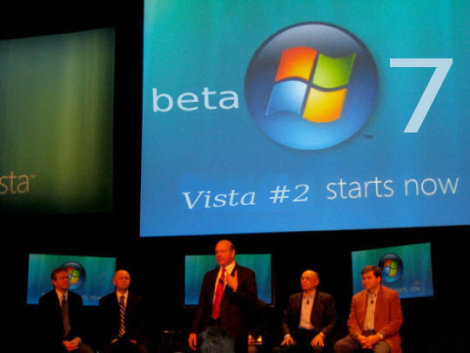

MICROSOFT IS trying to move users not just to Vista 7 but also to Fog Computing, which gives Microsoft control of these users' data. The Economist advertises this and it also contains this reminder that Vista 7 is not selling better than Vista. It's just a load of hype and Microsoft's usual game with numbers that are meaningless -- or worse -- highly misleading (we provided an explanation before).
And yet the migration from XP to Windows 7 has been little more than a trickle. While Microsoft may not like to admit it, the majority of Windows 7 adoptions have come from people buying new computers with the latest operating system already installed, rather than purchasing an upgrade for their tiresome Vista computers, let alone old XP workhorses.
“Even users who move on to Windows XP SP3 are still exposed.”Microsoft is now officially dumping Windows XP SP2 [1, 2], which means security headachs for those who don't move up (original here). Windows Server 2000 is named among the expired products, but it has not actually been patched for a long time. Microsoft may have already violated its agreement.
Even users who move on to Windows XP SP3 will still be exposed. There are those who resort to blaming Google for Microsoft's incompetence here (notably InformationWeek [1, 2] and Forbes blogs). It's an exercise in more blame-passing, making Google the "bad guy" for revealing a Windows weakness that needs fixing. Even Murdoch's press wrote about it amid controversy.
The incident—along with another episode last week where a Google Inc. researcher went public with a security flaw in some Microsoft Corp. software before the company fixed it—have revived debate in the technology industry over how exactly people should go about disclosing security problems.
Anyone running Windows XP or Windows Server 2003 needs to update their registry ASAP.
Microsoft took a potshot at Google's bid to spice-up its search page by adding a feature to add background images.
Comments
Needs Sunlight
2010-06-21 09:37:37
If there are still jerks out there running Windows, they tend to whine about wanting to keep the familiar UI. I find XP to still be butt-ugly, however, for those that swing that way, there is a linux distro designed to have that hideous XP look and feel: China's Sunwah Linux known as RAYS LX Linux Desktop Distribution. It's based on Debian, like many other distros, and it is possible to download and install, though many of the pages are in Chinese.
For those that want to 'keep using XP', it is their best choice, but unlike XP, it is virus-free.
A side note: to pass the ANZAC nations in the field of computer technology, China does not have to create anything new. It only has to catch up to where we were 10 or more years ago.
Obviously because of the subsequent infection with of Windows and Microsoft products into the public and private sector, the ANZAC nations have not just fallen behind, but actively traveled backwards. So using what was available 10 or more years ago will put China ahead technology-wise.
Also, the burden that Microsoft products place on workers means that were they use them, workers produce 20%-30% less output despite greater effort. So China's industry and public sector is more productive without the Microsoft albatross.
Lastly, China is so obviously large in many ways that computerization (real computerization, like ANZAC had in the 1980's) will boot them over the goal line between the goal posts and out through the back of the net. Before computers became infected with Microsoft products, they saved time and boosted productivity.
DHS ought to be wiping NTFS partitions off of all hard disks at the border.